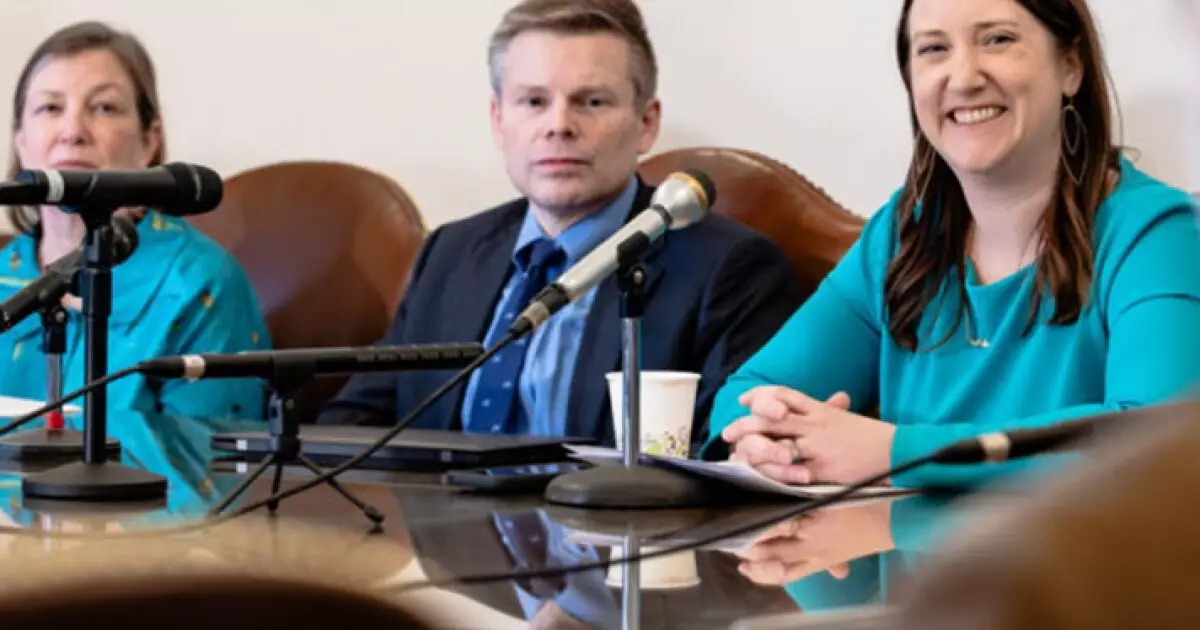The recent approval of Washington state’s budget exemplifies the tension between fiscal responsibility and governmental expansion in an environment fraught with economic uncertainty. This $77.9 billion spending plan, finalized after fraught negotiations, comes with a staggering $8.7 billion in anticipated tax increases and an equally troubling $5.9 billion in program cuts. Largely hailed by state lawmakers as a triumph, this budget rests on shaky grounds, underscoring a significant imbalance between income and expenditure that taxpayers must confront.
The fiscal measures in this budget paint a troubling picture: although no state workers will face furloughs and the rainy-day fund remains untouched, the heavy tax increases paired with severe budget cuts to essential services hint at a looming crisis. How can we justify the expansion of governmental spending when millions of dollars are being siphoned off from programs that support education, housing, and drug rehabilitation? Cutting funding to crucial social programs while enforcing higher taxes on residents invites distrust among the very constituents these lawmakers are supposed to represent.
Redistribution vs. Sustainability: The Unfolding Controversy
In light of the state’s projected $16 billion deficit, the budget paints a stark picture: a government that prioritizes expanding its reach while neglecting sustainable financial practices. Lawmakers approved new taxes, such as a six-cent increase on gas and targeted fees on electric vehicles like Teslas, under the pretext of funding transportation projects. However, one must wonder if raising taxes on middle- and lower-income families is a responsible solution to close fiscal gaps. The state must develop a financial strategy that not only addresses immediate deficits but also considers long-term economic sustainability.
Moreover, while Democratic lawmakers have downplayed tensions with Governor Bob Ferguson, the ideological clashes surrounding the proposed wealth tax reveal deeper factions within the party. Ferguson’s initial resistance to new taxes demonstrates a yearning for a more judicious approach to state spending. Although the notion of a wealth tax was shelved for now, its revival is not out of the question, indicating a persistent push from progressive factions that invariably jeopardizes the economic landscape.
The Education Dilemma: Priorities Out of Alignment
A deep dive into the budget reveals an unsettling paradox: while legislators tout education spending as a success, substantial program cuts threaten to undermine this narrative. The allocation of $975 million toward education amidst severe funding reductions for essential social services is an alarming contradiction. If education is to be prioritized, one must question whether slashing funding for drug rehabilitation or child support programs truly serves our youth.
The concerns voiced by some lawmakers about inadequate special education funding further highlight the reality of misaligned spending priorities. Advocating for increased educational funding while simultaneously dismantling support systems creates a hazardous environment for all state residents. Constrained budgets should trigger reevaluation and reallocation of existing resources rather than simply resorting to added taxation.
Accountability and the Role of Leadership
Governor Ferguson’s lukewarm support for the budget underscores a broader concern about leadership accountability in determining fiscal health. By insisting on a structured budget review process, he places the onus of responsibility back on lawmakers, creating an atmosphere ripe for debate regarding the long-term implications of their decisions. However, in his bid for fiscal accountability, the emphasis on progressive policies—like elevated taxes rather than strategic cuts—reflects a troubling tendency toward profligacy in governance.
Although Ferguson has lauded the budget for preserving the state’s rainy-day fund while limiting tax proposals, it is crucial to scrutinize the content of such decisions. As citizens grapple with the implications of this budget, it becomes increasingly unclear whether these policies are tailored for their benefit or simply political expediency.
Future Implications: The Price of Reckless Spending
While proponents of the budget may claim a temporary victory in crafting a plan that appeases many constituents, the reality is that this fiscal strategy is short-sighted and potentially perilous. The combination of extensive tax hikes coupled with significant program cuts indicates a state still learning to manage its financial affairs effectively. With the budget’s heavy reliance on tax revenues and burdensome debt repayments, residents should brace for the financial fallout that comes with such reckless spending practices.
In a rapidly changing economic landscape, Washington’s leaders have a critical responsibility to pursue policies that promote prosperity rather than financial dependency. The state must pivot toward practical, balanced solutions, embracing fiscal conservatism alongside necessary social support. The well-being of its residents should take precedence over grand, ambitious projects that don’t adequately reflect the realities of their financial burdens. As we move forward, it’s time to scrutinize whether this budget truly serves the interests of Washingtonians, or merely perpetuates a cycle of dependency and discontent.

